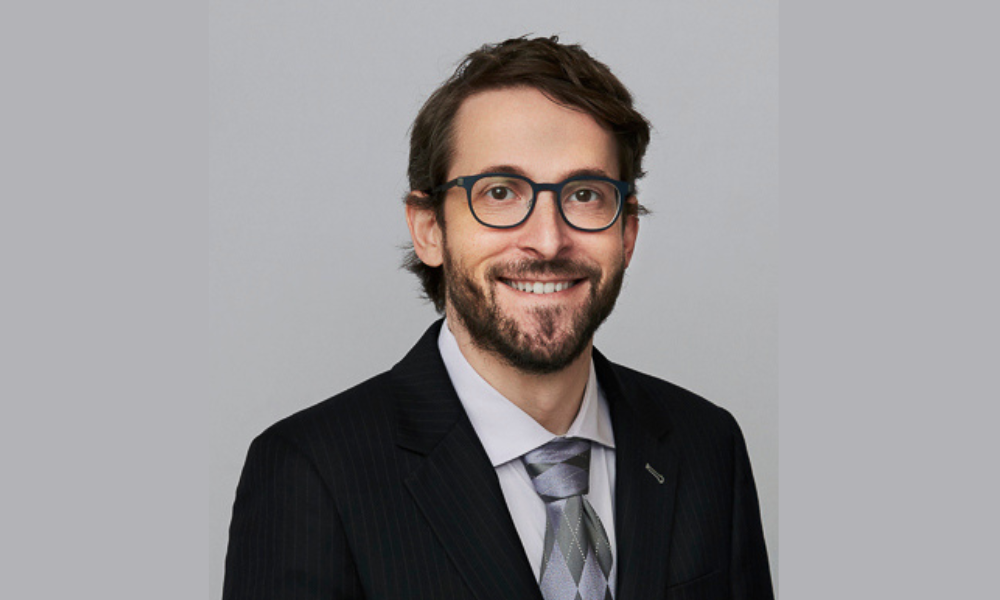[ad_1]
As TPLF offers contract, funders say insurance coverage brokers are getting in on the motion

Third-party ligation funders have been partly blamed for an increase in nuclear verdicts and hovering authorized prices which can be driving up the worth of insurance coverage. However as questions on transparency and hedge fund and overseas affect abound, authorized funders say insurance coverage brokers and insurers are muscling in on the area.
Some insurers may even be mulling funding in what’s turn out to be identified throughout the insurance coverage trade as third-party litigation funding (TPLF), the director of 1 business authorized finance agency claimed in an interview with IBA.
An insurance coverage trade bugbear, authorized funding inside fee of return (IRR) might be as excessive as 25%, as per AM Greatest. This has made it a beautiful area for buyers, from hedge funds to – lobbyists say – sovereign wealth funds and different overseas entities.
However regardless of meteoric progress in recent times, 2023 marked a contraction for business authorized funding offers. In the meantime, insurers and brokers have introduced in adjoining merchandise and began to compete if not within the area, then side-by-side.
Insurance coverage and authorized funding – a “180-degree swing”?
Invoice Farrell, Longford Capital co-founder, managing director and normal counsel, highlighted what he termed a “180-degree swing” over the previous two years when it comes to the way in which some insurance coverage companies are potential wins from authorized actions.
“Probably the most respected insurance coverage brokers and probably the most respected insurance coverage carriers have been offering product providers to litigators,” Farrell mentioned.
Some have “even thought of funding in litigation funding,” Farrell claimed, although he didn’t identify potential investor names.
At the very least two well-known insurance coverage brokers have sponsored specialist authorized funding conferences. Aon, the world’s second largest insurance coverage dealer, served because the gold sponsor of litigation finance trade convention, LF Dealmakers Discussion board.
“Aon’s staff of seasoned former litigators and funding bankers can present single-case or portfolio-based insurance coverage options that enable litigation finance corporations to switch threat, lock-in upside, decrease capital prices, appeal to new buyers, maximize capital deployment, and monetize investments,” the worldwide dealer’s sponsor bio reads.
Denver, Colorado headquartered CAC Specialty was additionally on board as a silver backer. CAC Specialty declined to remark when approached by IBA, whereas Aon didn’t reply to requests for remark.
Main insurers, together with the likes of Chubb and Liberty Mutual, have constructed up portfolios within the contingent threat area, providing merchandise like adversarial judgment insurance coverage and judgment preservation insurance coverage. Insurers have zoned in on business authorized actions, for instance providing cowl for impending or ongoing circumstances that might maintain again a consumer’s company transaction or M&A deal. A flurry of former litigation finance workers have jumped ship to work in insurance coverage.
Authorized funding offers contract – the insurance coverage and macro influence
Some stakeholders have predicted insurer curiosity could even “considerably influence” the authorized funding area. Others, like Westfleet Advisors, have disputed that insurance coverage will change the state of play exterior area of interest areas like appellate monetization.
In its 2023 Westfleet Insider report, which examines authorized finance trade efficiency on an annual foundation, Westfleet pointed to wider market dynamics because the probably offender behind TPLF deal shrinkage final yr. Amongst these, the rate of interest surroundings has made returns in different property extra engaging. In the meantime, personal credit score and personal fairness (PE) asset courses have confronted widespread pullback amid portfolio rebalancing.
Additional authorized funding trade consolidation and “extra shakeout” is probably going into this yr, Westfleet forecast.
How massive is the authorized finance trade?
Lately [the industry has grown, but last year saw an about turn]. Many authorized funders started rationing their capital in 2023 because the trade’s new deal commitments contracted nearly 14%, as per Westfleet Advisors. In accordance with Westfleet Insider figures:
- There have been 39 lively funders in 2023 (2022: 44)
- Authorized funders had $15.2 billion of property beneath administration (2022: $15.1 billion)
- Authorized funders dedicated $2.7 billion to new offers (2022: $3.2 billion)
- 353 new offers have been agreed (2022: 368)
- Large legislation accounted for an growing slice of the pie in 2023, garnering 35% of whole commitments (2022: 28%)
- Common deal measurement was $7.8 million (2022: $8.6 million)
Additional TPLF contraction could be a plus for lobbyists
Any additional authorized funder dampening could be welcomed by insurance coverage lobbyists. The American Property and Casualty Insurance coverage Affiliation (APCIA) has accused authorized funders of driving protracted litigation to ship most earnings.
“It is a downside that impacts all of us,” mentioned APCIA VP & counsel James Whittle (pictured beneath). “They [legal finance firms] assist underwrite the continuation of [legal] issues, which leads to extra price and influence for everybody. All of us wind up paying extra for services and products that we, as Individuals, and admittedly everybody across the planet, wants.”

One case cited by lobbyists for example of authorized financers dragging out authorized actions facilities on Burford Capital and its consumer meals distribution large Sysco. Sysco has reportedly alleged that Burford prevented it from accepting settlements in antitrust litigation, preferring to chase greater returns.
Within the UK, lots of of sub-postmasters wrongly fired and accused of theft and dodgy accounting following an IT difficulty took dwelling simply 20% of a £56.75 million settlement award from former employer the Submit Workplace. Authorized motion funders reportedly banked £46 million, or 80%.
“Litigation financing isn’t driving the bus, litigation financing is leaping on the bus as a result of the returns are so nice,” mentioned Joe Petrelli, president of rankings company Demotech. “The cash is following the success of the enterprise mannequin, and that’s a facet of this problem that most individuals are lacking.”
Authorized funding and overseas interference fears
The US Chamber of Commerce Institute for Authorized Reform (ILR) has referred to as for better transparency round funding preparations and a ban on overseas funding within the courts via entities like sovereign wealth funds. Some state courts have moved to require transparency round authorized funders’ function in a case. Indiana and West Virginia are two current movers.
Matt Webb, ILR senior VP of authorized reform coverage, pointed to a “poisonous soup” of “opaque and secretive” funding preparations. In lots of states, authorized funders’ involvement in circumstances doesn’t need to be disclosed. The ILR has labeled authorized funding a nationwide safety threat, and Webb cautioned that an undercurrent of overseas affect might be creeping in to revenue from litigation or “management” it for causes unrelated to an underlying case.
A current report exposing an funding agency tied to sanctioned Russian billionaires secretly pouring cash into U.S. courts is shining a much-needed highlight on the third get together litigation funding (TPLF) trade.https://t.co/rLW1mHqimH
— U.S. Chamber Institute for Authorized Reform (@LegalReform) April 3, 2024
“It may well have very actual nationwide safety and financial safety challenges for the entities which can be being subjected to the litigation funded by these by these funders,” Webb mentioned of overseas TPLF affect.
American corporations’ mental property (IP) may even be in danger, Webb warned. It’s a problem that the ILR believes requires each a state and federal – be that from Congress, the Division of Justice (DOJ) or the Division of Homeland Safety (DHS) – response.
Authorized funders hit again
With litigation financers going through lobbyist calls and scrutiny, IBA reached out to 6 of the perfect identified and largest business authorized funders. Two, together with Longford’s Farrell, agreed to an interview. Administrators at one agency responded with detailed emailed responses.
A typical consensus was drawn between them: Issues round overseas affect and transparency are an overblown “pink herring”, orchestrated by lobbyists to pull the younger trade into deeper regulation and present it in a nasty gentle. Even the ‘third-party litigation’ moniker has been launched to make litigation finance “scarier sounding”, Burford Capital managing director Andrew Cohen (pictured beneath) countered.
The administrators argued that authorized funders are taking part in a constructive function in serving to companies tackle corporations that they in any other case may not be capable to afford to, whereas massive company and nationwide legislation corporations at the moment are additionally seeing the worth of authorized funding.
It could be business suicide for authorized funders to tackle baseless circumstances, they mentioned.
“Backing non-meritorious litigation could be deadly to the litigation finance trade, which is why, on common, litigation funders reject over 95% of the potential investments introduced to them,” Omni Bridgeway US co-chief investor for the US, Matt Harrison, and Omni senior funding supervisor Fiona Chaney, mentioned in emailed feedback.
Given insurance coverage carriers could also be referred to as upon to defend “closely vetted circumstances” it’s unsurprising that the trade has voiced considerations, they mentioned.
“After all, insurance coverage carriers’ baseline curiosity is to keep away from paying out on giant indemnity insurance policies when litigation adversaries are profitable on the deserves or a big settlement is important and prudent,” the Omni administrators added. “This curiosity will at all times run instantly counter to litigants which can be making an attempt to implement meritorious claims towards an insured adversary.”
Burford’s Cohen labeled overseas interference and protracted authorized motion allegations as “nonsensical”. Fortune 500 corporations have a myriad of overseas buyers, he famous. He additionally disputed that litigation finance is likely to be dragging out circumstances and getting in the way in which of equitable settlements.

“For our shoppers, authorized finance is discovering options to a monetary want,” Cohen mentioned. As per the Burford MD, that might imply slicing down on the necessity to pay authorized charges that they can not afford to spend their very own capital on, or liberating them as much as spend it on infrastructure, growth or elsewhere.
Who’re a number of the finest identified and largest litigation finance corporations?
Burford Capital (BUR):
- One of many largest and most well-known litigation funding corporations, Burford Capital has been a key participant within the trade for a number of years, offering financing throughout a variety of litigation and arbitration issues.
- Burford has reviewed greater than 12,000 issues, dedicated greater than $6 billion to the authorized market, and predicted with 96% accuracy the returns on current portfolio.
Omni Bridgeway:
- Recognized for its in depth world presence, Omni Bridgeway gives funding for litigation and enforcement proceedings, with a robust give attention to advanced, high-value disputes.
- The corporate anticipates additional closings over the following 12 months to construct as much as the capped measurement of US$1 billion throughout each funds and Omni Bridgeway will proceed to be a 20% co-investor.; Omni Bridgeway broadcasts US$485 million first shut of Funds 4 and 5 Collection II capital elevating
Fortress Funding Group, LLC:
- Whereas it operates throughout varied funding methods, Fortress has a devoted litigation finance division that invests in authorized claims.
- At the moment manages $46 billion of property on behalf of greater than 1,900 institutional buyers and personal shoppers
Parabellum Capital:
- A outstanding identify within the litigation finance trade, Parabellum Capital focuses on offering capital for a broad spectrum of litigation issues.
- Has closed on a $754 million fund that’s among the many largest personal swimming pools raised for litigation finance; Parabellum has grown to $1.45 billion in property beneath administration
Longford Capital Administration:
- Makes a speciality of offering funding capital to companies and universities concerned in advanced business litigation and arbitration.
- Longford was one of many first litigation funds in the US and is among the many world’s largest litigation finance corporations with greater than $1.2 billion in property beneath administration
Validity Finance, LLC:
- Gives litigation finance options to plaintiffs and legislation corporations engaged in important authorized disputes.
- With a long time of mixed expertise in funding, the Validity staff of trial-tested attorneys has invested greater than $400 million since 2018 throughout greater than 70 issues
Authorized finance – “unfettered evil” or dawning actuality for the insurance coverage trade?
“There’s room for insurers to see the authorized finance market not as an unfettered evil, however simply one other market the place funding of various sorts of merchandise might be useful, and authorized finance can twist with… insurance coverage merchandise,” Cohen mentioned.
The insurance coverage trade could don’t have any selection however to get used to it. Longford’s Farrell mentioned he hoped litigation funders may take a “10, 15 or 20%” slice of the $372 billion authorized trade pie. At the moment, he famous, it holds a lower than 1% market penetration.
Nevertheless, it could take some persuasion to persuade some insurer advocates and authorized lobbyists that investor-backed litigation financing is, if not a good friend, a sound market participant somewhat than foe. Whilst some insurers and brokers look to wield their affect in adjoining areas and work with authorized funders.
“Their first intuition is to at all times deny that there’s a downside after which to do all the things they presumably can to stay behind the scenes,” mentioned the ILR’s Webb.
Received a view on TPLF, or litigation funding, and its future influence on insurers and insurance coverage brokers? Go away a remark beneath.
Associated Tales
Sustain with the newest information and occasions
Be part of our mailing checklist, it’s free!

[ad_2]